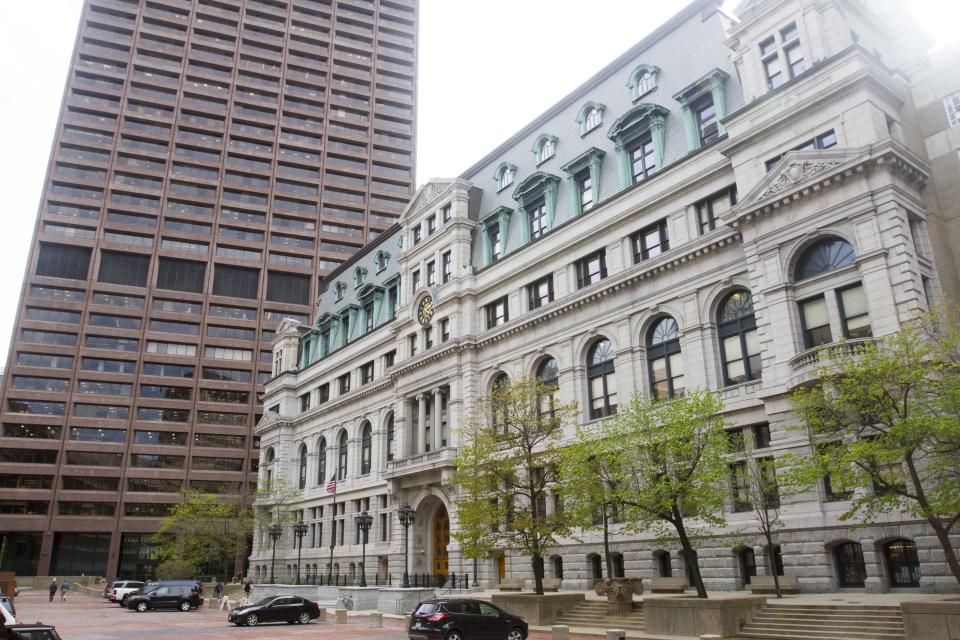At 17, he killed a man in Cohasset. 40 years later, he asked for a new trial
The state Supreme Judicial Court has denied a Marshfield man's request for a new trial more than 40 years after he was convicted of murder in the death of a Cohasset Golf Club manager.
The lawyer for defendant William McDermott, who was a maintenance worker at the club, argued for a new trial on the grounds of prosecutorial misconduct, inadequate jury instructions and sentencing that constituted cruel and unusual punishment.
McDermott was 17 in November 1981 when he shot Robert Kemp 11 times with Kemp's nine-shot revolver, according to the opinion written by Associate Justice Frank Gaziano. Kemp's body was found fully clothed in a ditch near the 18th green with his pockets turned inside out and his wedding ring, gold watch and wallet missing.

Police found Kemp's car at a burned-down church in Marshfield, about 2 miles from where McDermott lived with his parents. In McDermott's bedroom, police found bloodstained jeans, underwear, shoes and a jacket. McDermott was later arrested at his sister's house in Pennsylvania.
During the 1981 trial, the defense portrayed Kemp as a rapist who targeted young male employees, while the prosecution argued that he was a murder victim unfairly slandered by the defense, Gaziano wrote. McDermott testified that Kemp had raped him in a golf club bathroom before he was killed.
At parole board hearings in 2012 and 2019, McDermott said he lied during the trial and that Kemp never raped him, Gaziano wrote in a footnote to the decision. However, because of McDermott's potential incentive to please parole officials, the Supreme Judicial Court did not consider these statements when deciding on the appeal, Gaziano wrote.
Alleged prosecutorial misconduct
In the motion for a new trial, McDermott's defense lawyer, Kathryn Hayne Barnwell, argued that the prosecutor employed homophobic and inflammatory rhetoric during the original trial, according to Gaziano.
Gaziano wrote that while the prosecutor did pursue improper lines of questioning while cross-examining McDermott, these transgressions did not create a "substantial risk of a miscarriage of justice."
The prosecutor had asked McDermott why he continued to work for Kemp if sex was a precondition and then questioned him about his sexual orientation.
The courts: Trial in case of South Shore teen girl's death after Christmas party could start soon
Marshfield murder case: Trial date for Marshfield wife accused of fatally stabbing husband pushed back. Here's why
"This line of questioning was premised on homophobic stereotyping," Gaziano wrote. "It suggested that tolerance of workplace sexual harassment varied according to sexual orientation (and that) a heterosexual employee ... would have quit."
Gaziano wrote that during the original trial, the defense also used homophobic tropes. The defense stated that McDermott was a "real" (meaning heterosexual) boy attacked by an older gay seducer.
Jury instructions
According to Gaziano, Barnwell also argued that the trial judge failed to define "sudden provocation" and "sudden combat" to the jury, both of which are circumstances under which a homicide would be deemed manslaughter rather than murder.
Because the defense's main argument was that Kemp had raped McDermott, the jury would have understood the alleged sexual assault "constituted an act of provocation in the manner described by the judge," Gaziano wrote. The Supreme Judicial Court concluded that any error in jury instructions could not have caused a miscarriage of justice.
Cruel and unusual punishment?
The final argument of the defense in its motion for a new trial said the sentence of life with parole for a juvenile – McDermott was 17 at the time of the murder – violates federal and state prohibitions on cruel and unusual punishment.
In his opinion, Gaziano wrote that in 2012 the Supreme Court banned life without parole for people under 18 at the time they commit murder.
McDermott was originally convicted of first-degree murder, which carries an automatic sentence of life in prison without parole. However, in 1984, the Supreme Judicial Court reduced his sentence to second-degree murder, and the sentence was changed to allow the possibility of parole 15 years after his arrest, Gaziano wrote.
The state, Gaziano wrote, is not required to release juveniles convicted of murder, but only to provide the opportunity for release based on maturity and rehabilitation. Because McDermott has been eligible for parole since Nov. 24, 1996, the court concluded that the sentence of life with the possibility of parole does not violate McDermott's rights under the Constitution or the Massachusetts Declaration of Rights, Gaziano wrote.
Thanks to our subscribers, who help make this coverage possible. If you are not a subscriber, please consider supporting quality local journalism with a Patriot Ledger subscription. Here is our latest offer.
This article originally appeared on The Patriot Ledger: 40 years after Cohasset slaying, court rejects request for new trial

